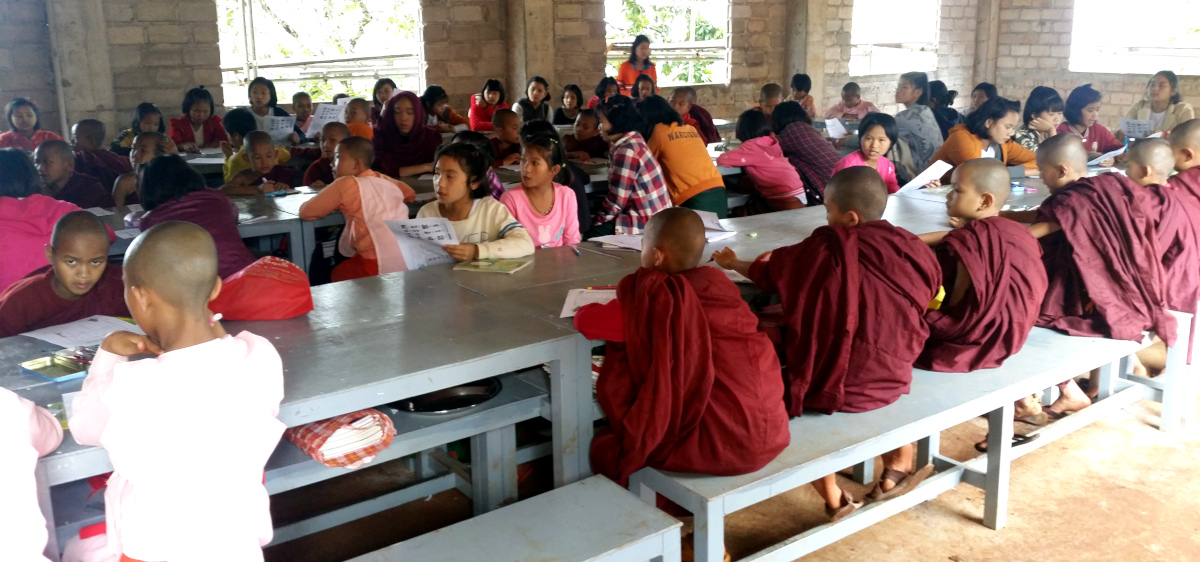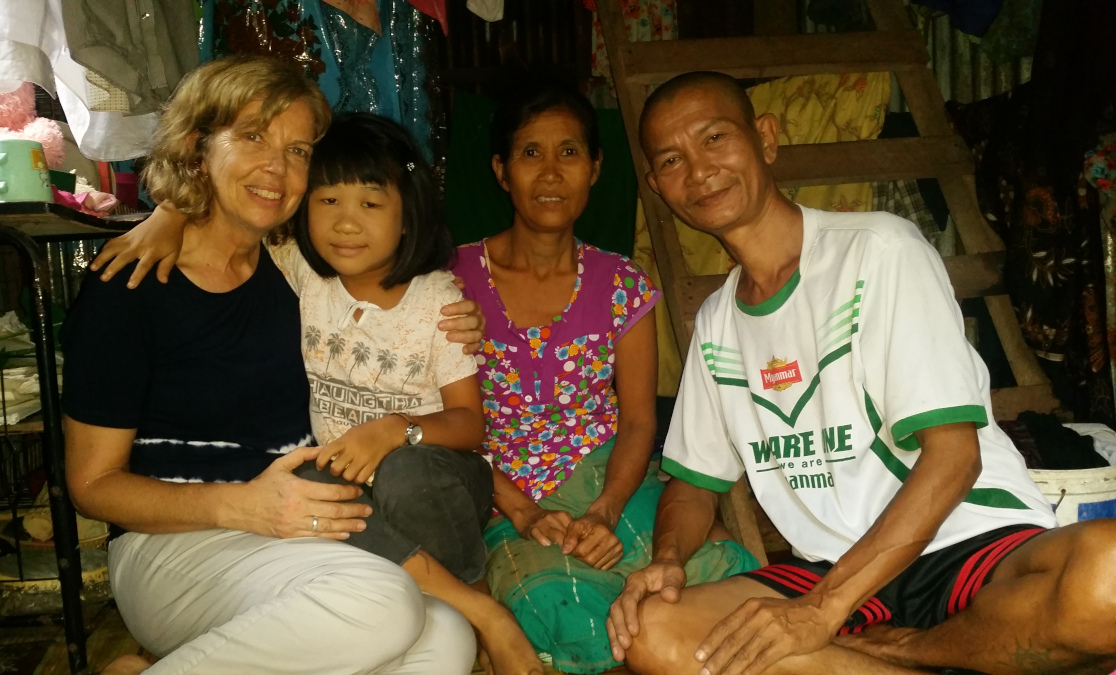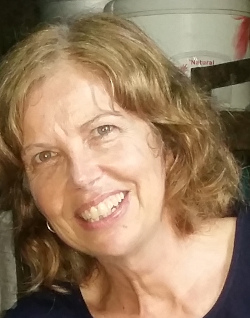Second of two parts
Thingangyun township is a slum area in the eastern part of Yangon where over 200,000 people live in tiny huts in the most basic conditions. As we walk through the narrow and slippery mud paths between the shelters, it is hard to imagine how people can live their lives in such poverty. The shelters are made from anything residents can obtain – tin, bamboo, wood or plastic. The homes are so tiny that there is hardly space for people to cook, eat or even sleep. Their few possessions, maybe some cooking pots and utensils or perhaps some cloth or a broom, are stored carefully on the ground or thin walls. There is no electricity, no sanitation, no water and no privacy. The stench of rubbish and rainy season damp is everywhere. It regularly floods. Many of the residents eke out a living selling flowers, food items or collecting items to sell from the rubbish. Children miss school to help their families earn some kyat to buy rice for a meal. A daily meal is by no means guaranteed. Families living here are vulnerable to sickness and malnutrition. Many live here because they are excluded from economic and educational opportunities because of entrenched ethnic and religious discrimination. Belonging to the wrong ethnic group prevents them from obtaining the necessary identity documents to get a job or enrol in school. It is as though many in Myanmar society close their eyes to the conditions in which they are forced to exist. In contrast, here, amongst the marginalised residents of Thingangyun, the Jesuits accompany poor and vulnerable families, affirming their dignity and providing practical opportunities to improve their lives.
The Jesuits have established a housing project to improve their living conditions, micro-credit opportunities for small-scale loans to establish livelihoods and a community school. This is only possible through the building of trust and friendship with the residents. Community development workers visit the homes to identify and assess needs and monitor ongoing welfare concerns. In contrast to the squalid physical conditions, the meetings with the families were characterised by warmth and respect. Small basic houses are being built using new materials which provide a little more space and a clean area to live and sleep. Still no power, water or sewage but something more sturdy that provides some safety, privacy and dignity. The microcredit loans help families purchase equipment that can support their efforts to earn a livelihood such as a trolley to collect rubbish, a sewing machine to make clothes or a tricycle to transport people or goods.
This is the context for the small community school that has been built to provide children and young people of the area opportunities for education. In contrast to the spacious buildings, landscaped gardens and modern facilities of many of our schools in Australia, this school is small and sparse but it provides a dry and safe place for students to learn. Volunteer teachers run classes and study groups in the evening for children whose motivation to learn is not stifled by the precarious conditions of their lives. Poverty presents all kinds of challenges that affect the students’ ability to learn and progress. However the commitment to accompany and support these young people affirms that their lives are valued and encourages a tangible hope for a future of inclusion and participation in their developing nation.
An overnight bus trip brought me to Taunggyi, the capital city of Shan state, a bustling city located on a mountain ridge and home to a number of different ethnic groups. Here I was able to visit the Saint Aloysius Gonzaga (SAG) Institute where over 400 students study English, Humanities and Social Science. The students themselves represent the ethnic diversity of Myanmar coming from Kayah, Kachin, Intha, Karen, Shan and other ethnic backgrounds. Students from poor backgrounds and/or from distant regions can board in the hostels and access the nutrition programme provided by the College. The experience of learning and living together breaks down barriers and promotes positive relationships between different ethnic groups and religions. In this way SAG provides a space where dialogue based upon mutual respect can be promoted, so important in building peace in a society that has known so much conflict and division.
Jesuit Mission helps to provide student scholarships which includes their boarding and food expenses and also provides funding for teachers and administrators of the school. Classes for younger students are provided through the weekend and summer school programmes. The educational opportunities greatly serve the local Church in Myanmar. How inspiring it was to visit the monastery schools with the teacher interns from SAG in Taunggyi. Young, committed women from different ethnic groups and faiths running free English language classes at the monastery schools crowded with young children from outlying villages, many of whom are orphans. They run these after school hours every weekday. There might be up to 80 students in a class. The children live in very simple conditions at the monasteries. Classrooms are basic tables and benches in a hall that we might call a shed. The lessons were well-prepared and engaging, reflecting the passion of the young teachers and the students’ hunger to learn. The next day we visited two more monastery schools with a larger group of male and female final year students to meet the monks and students in preparation for their forthcoming classes.
Sometimes what is obvious can be refreshed or seen more clearly in a different setting. Whether in a classroom in Australia or a monastery class amongst the hills of Taunggyi in Myanmar, education opens opportunities for each individual student to fulfil their yearnings and their unique potential. Fostering this potential, nurturing the hope to achieve it, providing the knowledge and skills to reach it and accompanying students through all the barriers that might prevent it, is a commitment lived out daily by the Jesuits and their colleagues in Myanmar. They are supporting the most valuable resource in Myanmar – its people. By choosing to accompany the people who live on the margins of society, they are also fostering the aspiration that all people can live with dignity in a just and peaceful nation.
Related story: How education can shape a nation: the Jesuit commitment to peace and justice in Myanmar (part one)










